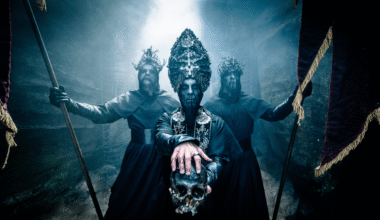Ritchie Blackmore’s name is synonymous with musical innovation. A founding member of Deep Purple and the mastermind behind Rainbow, Blackmore has continually evolved his artistry, dabbling in genres as varied as progressive rock and medieval-inspired music. But while his creativity knows no bounds, there are certain musical movements he unequivocally loathes—and one band, in particular, he blames for a seismic shift in rock music.
A Shifting Landscape
Emerging as a guitar hero during the heyday of 1960s rock, Blackmore witnessed—and helped shape—rock music’s golden era. However, as the 1970s gave way to punk’s rebellious ethos and the subsequent rise of post-punk, a new zeitgeist emerged that sought to dismantle the dominance of classic rock icons like Deep Purple and Led Zeppelin. Punk rock’s raw simplicity stood in direct opposition to the elaborate, grandiose nature of 1970s rock, viewing it as bloated and out of touch.
The post-punk wave that followed further pushed music away from its hard-rock roots, favoring clean production and experimental elements. For many classic rockers, this was an unwelcome change, and Blackmore was no exception. Despite adapting Rainbow’s sound to embrace synthesizers and melody during the 1980s—with songs like “Street of Dreams” even becoming his personal favorite—he despised what he saw as a sanitized shift in rock’s essence.
Target: The Police
While reflecting on this musical transformation, Blackmore singled out one band as the embodiment of everything he hated about the post-punk era: The Police. In a 1987 interview with Metal Hammer, Blackmore didn’t hold back, declaring:
“Can I state here that I hate The Police?”
This animosity stemmed from his perception that bands like The Police, with their polished production and intricate yet commercial style, had steered rock music away from its raw, earthy roots. Blackmore argued that their approach to music epitomized the “sheen of gloss” that had come to dominate the 1980s, creating a landscape where authentic, aggressive rock was rare.
Blackmore credited bassist Roger Glover for a key insight during this period. Glover believed bands like Deep Purple were essential as a counterbalance to the slick, plastic sound exemplified by The Police. “There wasn’t a band playing that earthy kind of rock,” Blackmore remarked, highlighting his belief that Deep Purple’s reunion in 1984 filled a crucial void in the music world.
A Broader Context
While Blackmore’s disdain for The Police is clear, the trio was far from the sole force driving rock music’s evolution in the 1980s. Bands like Talking Heads, New Romantic pioneers, and acts such as Simple Minds contributed to the post-punk and new wave movements, which sought to blend art-rock with pop sensibilities. Hits like The Police’s “Every Breath You Take” undoubtedly exemplified this trend, but they were part of a broader cultural shift rather than its sole catalyst.
An Artist Apart
Blackmore’s comments underscore his status as a fiercely individual artist who has always gone against the grain. His resistance to following trends and his dedication to authenticity have defined his career, even as the music world has changed around him. Whether railing against The Police or pushing Rainbow into new creative territories, Blackmore’s legacy remains one of unyielding artistic conviction—proof that, for some, the past is worth preserving even in a rapidly evolving musical landscape.







